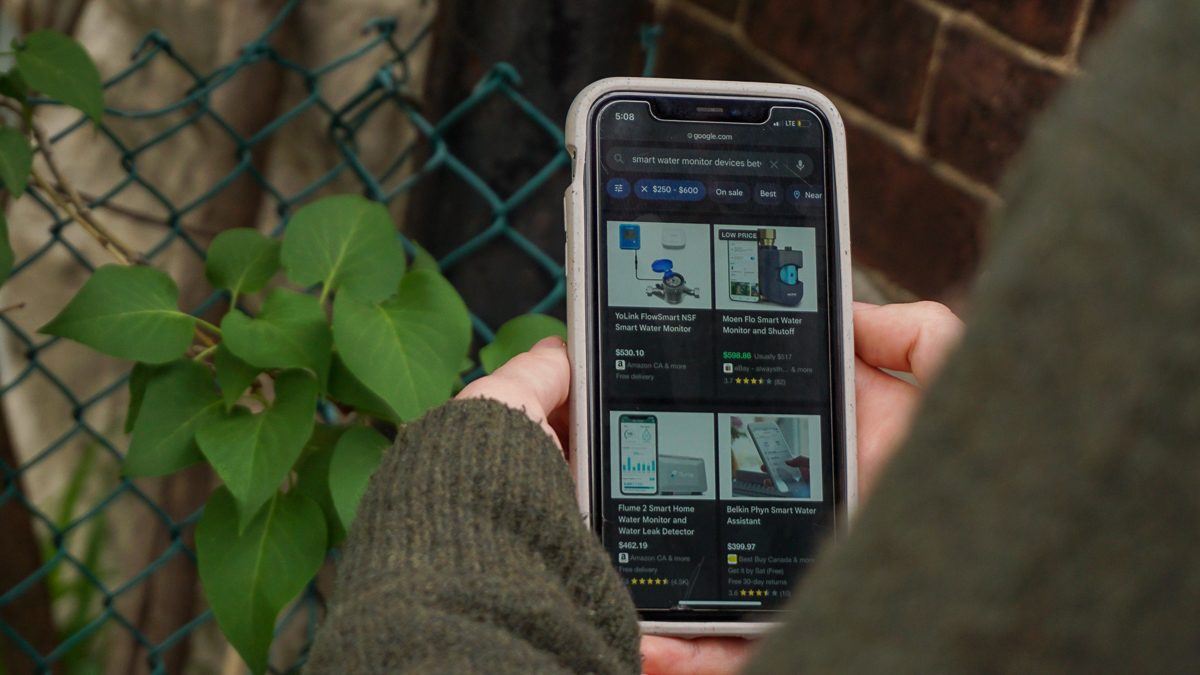The City of Ottawa is aiming to strengthen regulations around smart-consumption monitoring devices on water meters, which could include working with the private company Alert Labs.
On Tuesday, members of the city’s environment and climate change committee discussed changes to the Water Bylaw, which regulates municipal water services. A report released on May 8 outlined a potential ban on renters and property owners attaching smart-consumption devices to their meters.
The report stated: “In recent years, property owners have begun attaching smart consumption monitoring devices directly to City Water Meters to remotely track water usage, particularly in non-residential and multi-residential properties. These devices interfere with the function of the water meter and its recording of accurate water consumption. To prevent damage to City Water Meters and mitigate the risk of City staff inadvertently damaging privately owned equipment during service appointments, staff recommend updating this section to include that no owner or occupant is permitted to attach any device to a City Water Meter.”
However, deputy city treasurer Joseph Muhuni clarified that the intent is not to fully ban these devices, but rather to only allow those the city has authorized. This could come in the form of a list of pre-authorized products or pre-approved standards.

The installation of certain smart water devices could interfere with an essential wire on the city’s water meters, potentially risking water theft, Muhuni said.
“Depending on how they’re attached, they could inadvertently disconnect that wire, and most people don’t know what that wire is all about,” he said in an interview with Capital Current.
These devices are marketed to homeowners, landlords and commercial property owners to provide instant leak alerts, water usage reports and even live flow rates.
The company, Alert Labs, which primarily sells to businesses and landlords rather than residential customers, presented a delegation to the committee about its two smart-consumption monitoring devices, Flowie and Flowie-O.
Alert Labs is operated and manufactures its products in Kitchener, Ont. It’s a wholly owned subsidiary of Watsco Inc., which is based in Florida.
According to Jen Richardson, Alert Labs’ director of marketing, the company employs 55 people in Ontario and has a “separate and distinct” management team in Canada.
There are over 500 locations in Ottawa with Alert Labs’ products installed, she said.
“Flowie is as non-invasive as looking at the water meter dial with your eyes,” Richardson said when speaking to the committee.

The company pushed to work with the city to remove this section of the bylaw or to have Alert Labs’ devices pre-authorized for its Ottawa clients.
John Dickie, chair of the Eastern Ontario Landlord Organization, also made a presentation to council in support of Alert Labs and advocated for a “win-win solution.”
One of Alert Labs’ water use monitoring packages, which includes an attachable water monitor, costs $ 1,685. When purchased in bulk by businesses, these packages are less expensive, Richardson said.
Bay Coun. Theresa Kavanagh hinted at potential problems for residents who have purchased other brands of smart consumption monitoring devices for their homes.
“There’s obviously (devices) out there that perhaps they’re a lot cheaper, and that’s why people want them . . . because they save money. But it could harm our system,” she said, emphasizing the need to protect the city’s infrastructure.
Muhuni said the city plans to communicate with residents about which products are deemed “safe.”
“As we continue to pre-authorize products, we will publicize them so that residents are aware that these are safe products,” he said in an interview. “We want to know, of course, when they are installed.”
Muhuni also noted plans to establish a framework for determining liability in cases where a city technician damages a resident’s smart device.
“Sometimes these products, because they are sitting on city infrastructure, could be damaged,” he said.
Additionally, the bylaw review included a hefty new $567 service fee for cancelled and rescheduled service appointments. According to city staff, this was triggered by a recent surge in no-shows.
The committee voted unanimously to recommend that city council pass the bylaw review at its next meeting later this month.




